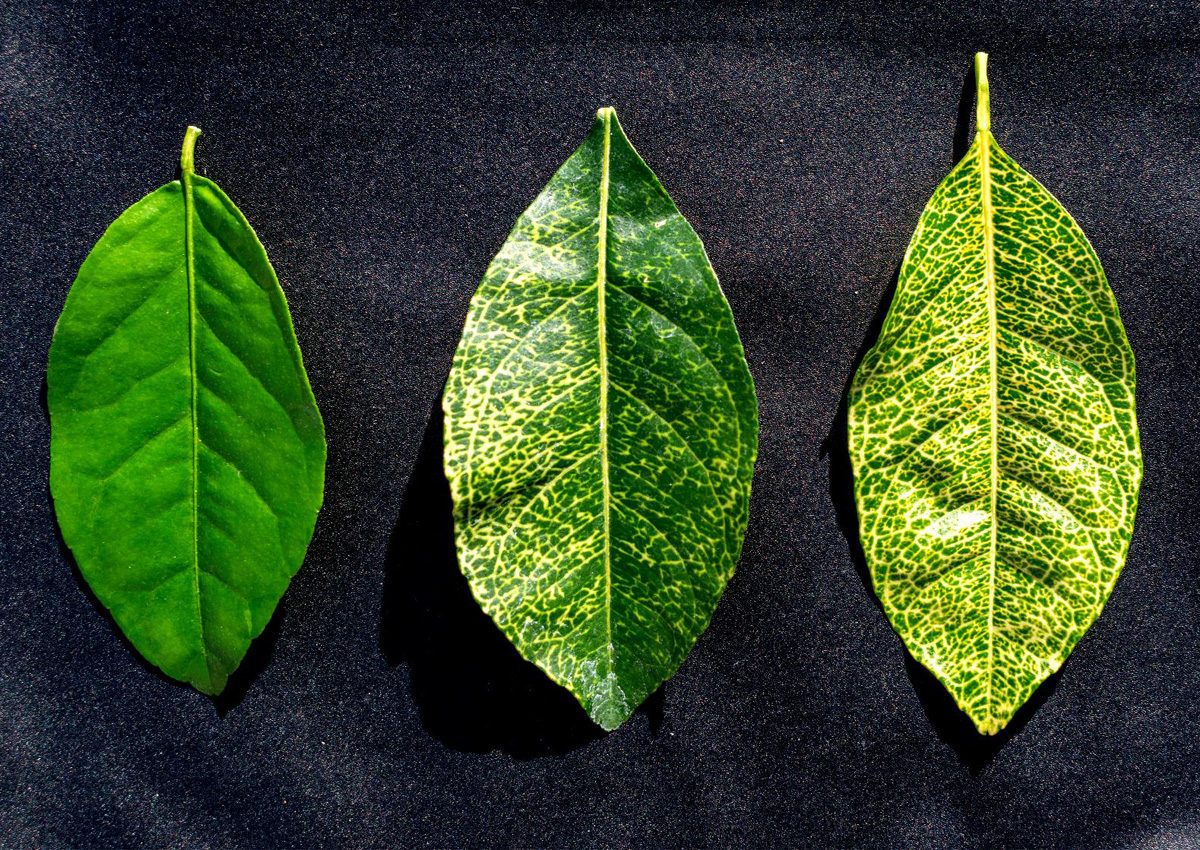
Genome of Little Known Disease Offers Hope for Citrus Plants
June 16, 2021| |
Scientists at the University of California Riverside are hoping the RNA of an obscure infection can one day be used like a Trojan horse to deliver life-saving treatments to citrus trees. Citrus yellow vein disease, discovered 64 years ago in Riverside has finally been unraveled, a significant step toward harnessing its unique properties.
In the past decade, Huanglongbing, also known as citrus greening disease has caused a 72% decline in oranges used for juice and a 21% decrease in the American fresh citrus fruit market. Growers in other parts of the world are similarly affected, as the disease continues to spread unabated. In 1957, plant pathology professor Lewis Weathers found four limequat trees with beautiful, bright veins on their leaves, almost fluorescent yellow that was recognized as a disease.
Experiments showed the disease is not carried by any animal or other microorganism. The researchers learned that the iRNA disguises itself with plant proteins that let it pass through cellular connective tissue. Kiran Gadhave, UCR microbiologist and lead researcher of the iRNA project explains that iRNA is amazing because it can manipulate plant cells to help it replicate, despite having only one functional gene. Though they believe the pathogen to be benign, the research team is doing additional testing to make sure it won't affect fruit quality or quantity, tree height, or any other markers of health.
For more details, read the article in UC Riverside News.
| |
You might also like:
- Researchers Find Peptide that Treats and Prevents Citrus Greening
- Virus Tolerant Citrus Developed Using a Combination of Biotech Tools
- Better Resistance to Citrus Canker Achieved Using CRISPR-Cas9-mediated Editing
Biotech Updates is a weekly newsletter of ISAAA, a not-for-profit organization. It is distributed for free to over 22,000 subscribers worldwide to inform them about the key developments in biosciences, especially in biotechnology. Your support will help us in our mission to feed the world with knowledge. You can help by donating as little as $10.
-
See more articles:
-
News from Around the World
- Could Gene Drive Protect Nature?
- Biotech a Tenable Solution to Addressing Hunger in Africa, Experts Say
- USDA Pushes Reform on Animal Biotech Regulations
- Study Shows Irish Potato Famine Pathogen Stoked Outbreaks on Six Continents
- Scientists Report a Plant Part in Arabidopsis for the First Time
- Genome of Little Known Disease Offers Hope for Citrus Plants
- Nicotinamide Can Protect Wheat from Fungal Attack, Study Shows
- Australia's Experience Highlights Importance of Regulations and Public Trust in Consumer Acceptance of Gene Editing
- Report Finds COVID-19 Pandemic Slowed Biotech Crop and Animal Approvals in the Philippines
-
Research Highlights
- Endogenous Promoters Induce Expression of Functional Genes in Soybean
-
Plant
- EMBRAPA Tackles Brazil's Regulatory Framework for Genome Editing
- Harmonized Regulations Key to Optimizing the Potential and Benefits of Gene Drive Technology
-
Read the latest: - Biotech Updates (January 21, 2026)
- Gene Editing Supplement (January 28, 2026)
- Gene Drive Supplement (February 22, 2023)
-
Subscribe to BU: - Share
- Tweet

